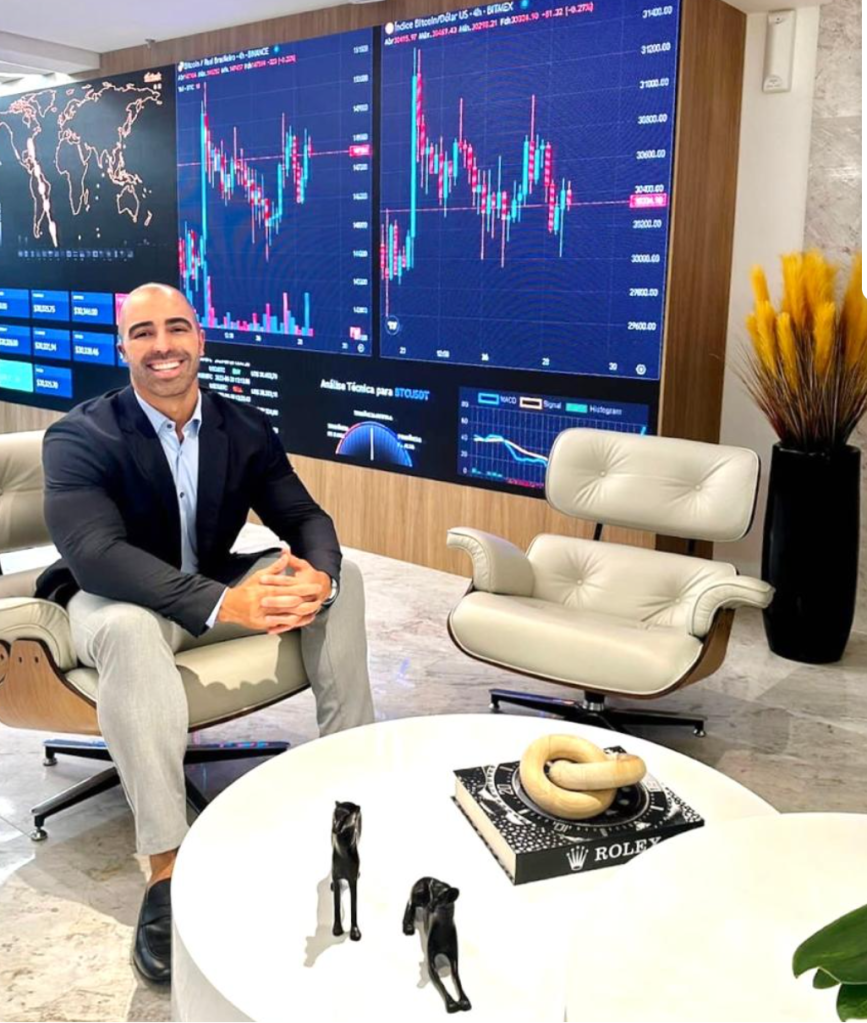Reviving Centuries-Old Wisdom: Exploring Arbitrage as a Cornerstone of Modern Investment in the Digital Era
BRANDVOICE – SPECIAL FEATURE
In today’s complex financial landscape, investors often find themselves overwhelmed by intricate information and calculations from the industry, leaving them unsure about the true meaning of the data. Understanding the strategies behind investments is crucial, but it can be challenging to navigate the everevolving world of financial markets.
As technology and artificial intelligence (AI) rapidly advance, investment strategies are continuously adapting to cope with the changing landscape. While some strategies embrace new micro approaches to deliver sustainable returns, others remain rooted in time-tested methods unaffected by the growth of AI. Real estate, venture capital, and commodities are among the strategies that utilize technology to expand their reach within the market. For instance, real estate developments can now be tokenized on a blockchain, while venture capital firms actively seek the next promising tech company at an early stage.

Amidst the dominance of AI and technology, there is one enduring strategy that has proved its efficacy over centuries yet remains relatively unknown to many: Arbitrage. The practice of exploiting price differences for the same asset in different markets dates to ancient times, with merchants in ancient Rome capitalizing on discrepancies in supply and demand across provinces.
During the medieval period, arbitrage thrived as a result of the extensive trade routes connecting Europe, Asia, and Africa. These routes facilitated the movement of goods and commodities, leading to varying prices for the same assets across different regions. Savvy merchants capitalized on these price discrepancies by engaging in arbitrage, purchasing goods at lower prices in one location and selling them at higher prices in another. This practice allowed them to profit from the imbalances in supply and demand across different markets.
The momentum of arbitrage continued to grow in the 17th and 18th centuries, especially with the emergence and expansion of stock exchanges in Europe. These formalized markets for securities, such as the Amsterdam and London stock exchanges, provided new opportunities for investors and traders to engage in arbitrage. As stock markets developed into hubs for financial activity, individuals sought to exploit price differences between various exchanges or assets.
However, in the 20th century, the efficient market hypothesis (EMH) posed a challenge to traditional arbitrage strategies. The EMH, proposed by economist Eugene Fama in the 1960s, posits that financial markets are highly efficient and that all relevant information is rapidly and accurately reflected in asset prices. In other words, stock prices fully and immediately incorporate all available information, leaving little room for investors to profit from price discrepancies through traditional arbitrage consistently.
As a result, the scope for traditional arbitrage diminished significantly, and the concept of a perfectly efficient market influenced investment strategies across the financial industry. Investors and traders turned to alternative approaches that incorporated technology and advanced data analysis to identify and capitalize on fleeting market inefficiencies. This led to the emergence of modern arbitrage strategies, such as statistical arbitrage and algorithmic trading. Statistical arbitrage involves using statistical models to identify pricing disparities, while algorithmic trading relies on computer algorithms to execute trades at high speeds based on predefined criteria. These cutting-edge strategies aim to take advantage of short-lived market inefficiencies and adapt to the rapidly changing dynamics of modern financial markets.
Today, modern forms of arbitrage, such as statistical arbitrage and algorithmic trading, continue to leverage technology and advanced mathematical models to identify fleeting price differences.
One crucial point about arbitrage is that it is extremely profitable in inefficient markets – or, in other words – markets that are still unexplored. Nowadays, the world is watching another massive moment in the process of the evolution of money with the global acceptance and understanding of digital assets. Navigating through this industry, we discovered a Miami-based quant fund that has been disrupting the industry with its groundbreaking technology by using – arbitrage. Arbtrust Venture is a quant fund that has been operating in the U.S. for three years and has sister companies in the agribusiness that date from the 30s, as well as banks, software development, and tech companies. Arbtrust has just one strategy: the pure arbitrage strategy using the high volatility of digital assets. In essence, Arbtrust is positioned in dollars and waits for the opportunities in which people are buying and selling digital assets at different prices in different markets. If you want to check the reality by yourself, you can check Bitcoin prices, for example, in two different exchanges right now – and you will see that they have different prices.
“Is that an easy feat, you might wonder?
Gabriel Storck, one of the partners at Arbtrust Venture, unveils the essence of their time-tested strategy, one that echoes the practices of European bankers from four centuries ago: purchasing the same asset at a lower price in one market and promptly selling it at a higher price in another market with greater demand.
With over seven years of experience from their global operations in South America, Arbtrust holds a valuable edge over companies just entering this space. Interestingly, Arbtrust’s intriguing history traces back to its roots as a tech company providing software development services in 2010. This early exposure to the tech industry paved the way for their seamless transition into the nascent digital assets realm – a strategy reminiscent of their sister company’s endeavors in the commodities market in the 1940s.
As Arbtrust continues to thrive globally from its Miami office, we anticipate Arbtrust’s expansion to Australia in the near future.”